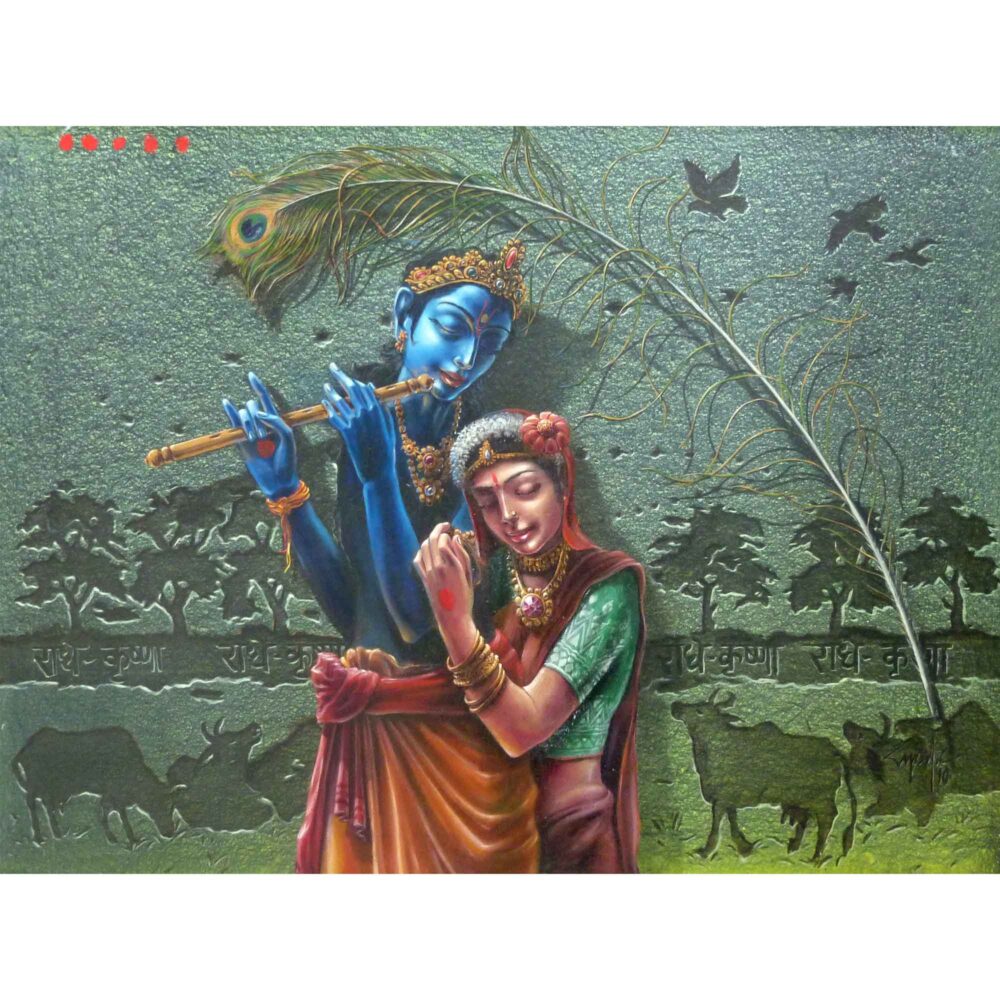A FRAGMENTARY APPRECIATION
Mythology and religious stories nurtured Gopal Chowdhury’s childhood. As he grew up, the contemporary world was projected through the specs of his early memories. He has a unique ability to create a third dimension on a two dimensional canvas, which creates visual magic, whereby his forms seem to emerge out of and blend with their stone wall background.
‘My paintings as one may call are basically concerned with human figures. Mythology and religious stories nurtured my childhood. Thus while I grew up, the contemporary world is projected through the specs of my early memories.
Primarily I painted the natural scenes fairly closed to how the eye would see it. In slow degrees as my facility in painting grew and as my knowledge of what comprised categorical structure in painting got defined, I sought to make a more truly personal And individual communication. I am not content with delineating what could be seen and sensed rather than with evoking what is deeply felt, what lay buried in memory and in the body of feeling.
Gradually the world around me fuses, blends, welded with the past memories which tries to burst out from the embryo destined for the foreground. Distinct with its own life and color; independent of it and yet melodiously accompanying it. In other words, form and color, though separated from each other could coexist independently on the same picture surface. The forms are very close to realism yet the given space seems to be deconstructed in terms of those forms. These may be asset of conventional vocabulary and not an attempt to render and intense version of distortion. These are simply an attempt of modification of natural appearances in order to arrive at intense expressiveness of realism.
The use of color in painting is almost synonymous with the purposeful use of color in signaling systems. My own experience as a painter teaches me that color exists on three planes, the first plane between the viewer and the canvas, the second beyond the canvas, and between these two, somewhere where the canvas stands the third plane exists. Then there are certain invisible area where the eye doesn’t touch, which are the areas of silence, and these are the most elegant. The problem is not one of color organization but of color circuit. Where nearness and distance are not determined by proximity. A red linked to a distant blue, ignoring the adjacent orange. Assigning the canvas to an approximate distance from the viewer, not measurable, because tone and color are travelling in space. In this context I felt a need of a change.
By the word ‘Change’ I did not mean a refuge but an other course of exercise, during this transitional period of mine.
A fragmentary appreciation of the formal beauty of a scene is not what concerned or impressed me. I feel that the central problem in self-expression, in terms of painting, is to arrive at an estimation of what constituted in my total vision. I feel the need to define the experience of a time-span to reflect values which are contemporary in art but also perennial and transcendent in nature. As an ideal spectator, I sought to state my commitment to interpreting natural phenomena with a pictorial vocabulary which was the product of an process within the self, and is intrinsically personal.’
-
Radha Krishna
₹150,000.00 30 x 40 inchesRadha - Krishna is recognized as the highest form of love. It was the purest, spiritual, devotional and free from carnal desires. This form or…

